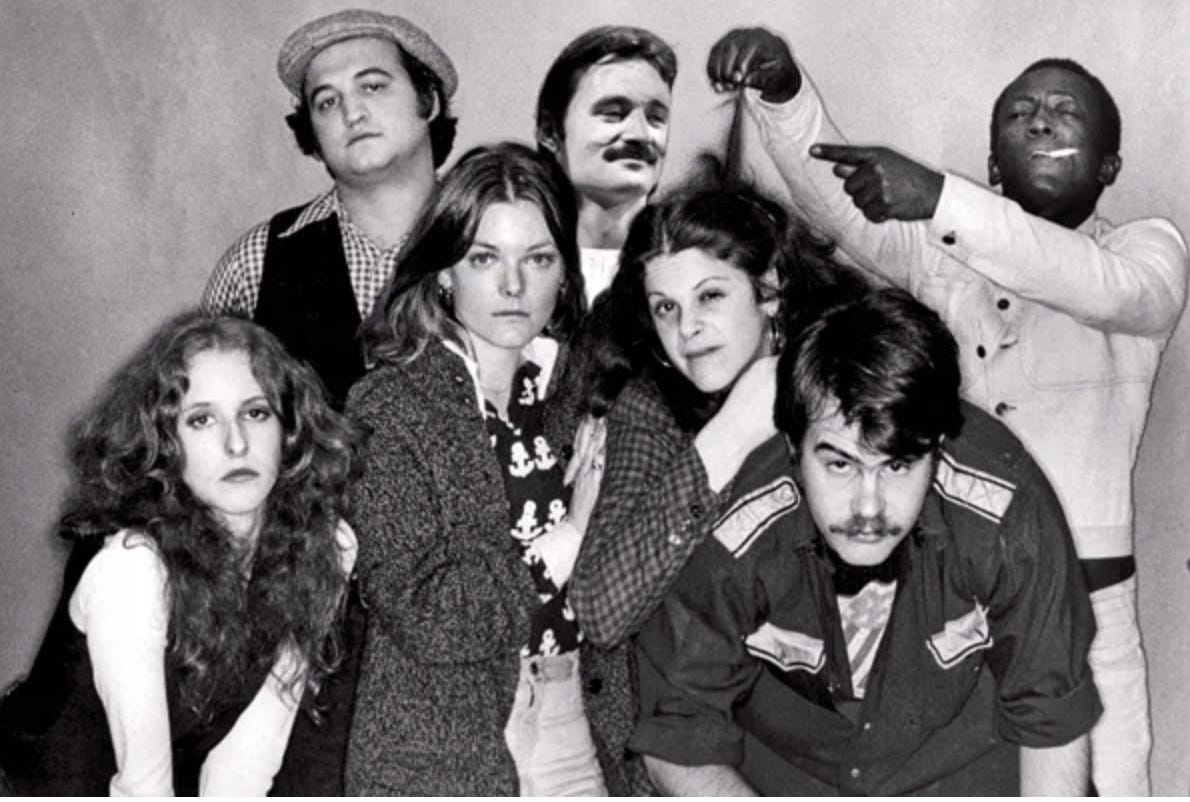The Tao of Improvisational Comedy
Most of you know I am an improv nerd with an improv background. It's shaped my life in more ways than just making me incredibly hilarious. Here are a few of them.
My background as a performer is in improv comedy, specifically with The Second City. People assume that improvisation is about being funny, quick-witted or naturally talented. Those things help, but like most anything else in the world, improv is something that can be studied and learned. Anyone who has taken a beginner improv comedy class has learned our most basic rules:
Say Yes.
This means to agree and accept. Another way to say it is to not deny. Beginning improv students always have an instinct to deny. They say "no" and shut down a scene because it is often the easiest choice to make. Denial is simply being unconsciously selfish and forcing your own plan onto someone else. Denying in improv comedy kills a scene. Denying in real life has more dire consequences. It kills dreams and relationships.
Heighten and Explore.
We often say this means to say "and." So the combination of the first two rules of improv are to say, "Yes, And." For improv to work, we have to be building a story together. We can't just say "yes" to our partner and not contribute something new. We add our best to the story being told. We build on what our partner gives us. By contributing our best, we all are better for it. In the real world, everyone longs to be part of a team where they are seen and heard. We all want to tell stories together.
Share the Spotlight.
Improv comedy is always performed as part of an ensemble cast. I love stand up comedy, but improv is something completely different. It's communal - a team activity. The worst thing anyone can do in improv comedy is to try to be funny or noticed. We are trained to share the spotlight, meaning our job is to set up our teammates to be funny. It's like making that extra pass in basketball. You simply cannot improvise well with a person who has to be the center of attention. Ego and competition must die for true collaboration to exist.
Play in the Moment.
Sometimes we say "show, don't tell." Improv scenes break apart or become boring when they are about the past or the future. A scene about two guys in a bar talking about the time they got arrested in college for stealing the Dean's cat is mildly interesting. Seeing that scene happen in real time is hilarious. One of the most common phrases I say to mid-level improv students when teaching is, "Don't tell me about it, take me there." Don't talk about what happened. Show me now. Be in the moment. Sure, you can learn from the past and dream of the future. But live today.
What does all of this talk about improv and comedy have to do with finding your unique calling and living a great adventure?
Here is the universal truth that many of us spend our entire lives disbelieving:
Everything is improvised.
Every moment. Nothing is scripted. We’re making it all up together as we go. Sure, you can and should make plans for the future, but as Mike Tyson once famously said, “Everyone has a plan until you get punched in the mouth.”
You should invest in strategies and have goals for your life and work, but these things at their core are just hopeful targets of what could be. Our goals, strategies and plans give us a direction to walk toward, but the second that one small variable enters into our story we have a choice to make. We can deny that the variable occurred and stick to our original plan, eventually falling victim to our own insecurities like a level one improv student. Or we can say “yes” to the variable and improvise our way forward.
We all subconsciously fall into denial from time to time. For me personally, it starts to manifest in my body as depression, anxiety and physical pain. (I always struggle with these things, but when I am trying to force my life into an agenda that isn’t working, it becomes much worse.)
You may be stuck in a scene that just isn’t working.
Your body may even be trying to tell you.
It may be time to “yes, and” your way to a new reality.





Another GREAT post, Joe! Yesterday I wanted to share your #1 of your 51 list with an acquaintance and she wanted to go through all of them right then. It was super enjoyable and made for great conversation and thought-share, but 20 minutes into it and we're at #15, I'm like, "Yeah, they're all pretty incredible, but, uh, how about I send them to you and you join Joe's Called for Adventure? :)
Joe—yes, and the old Zen masters would grin at this. They called it “beginner’s mind.” No script, no clinging. Just showing up, awake, with a great capacity to be surprised. Life is improv—but most of us are too busy defending the scene we thought we were in. Drop the script. Bow to the moment. Then see what arises.
—Virgin Monk Boy